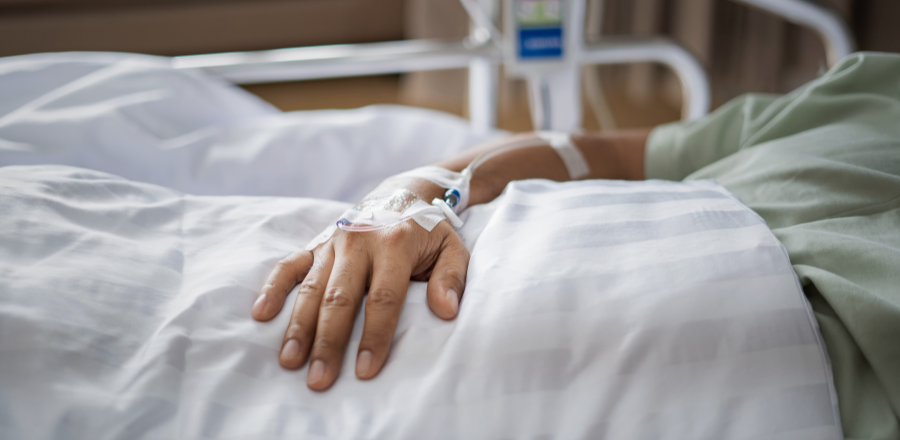COVID-19: Victorians, don’t delay heart help, Phil says
Fit, active and just 55-years-old, Phillip Boyle didn’t think he was a candidate for a heart attack.
But after he was hospitalised in July during COVID-19 restrictions, Phillip is now urging Victorians to put aside any fears about seeking help if they experience the warning signs of a heart attack.
Phil had an 80 per cent blockage in his left anterior artery (LAD). A full LAD blockage is known as a ‘widow-maker’ because it can cause sudden cardiac death.
“I went pale when they told me that. I was lucky. Despite my COVID-19 fears, I took steps to get the vital medical help I needed to save my life before it was too late,” Phillip said. Now he wants to make more Victorians aware of the need to look after their health even in lockdown.
A Heart Foundation HeartWatch survey of more than 7000 Australians found there has been a significant decrease in the proportion of people who would call an ambulance if they experienced the warnings signs of a heart attack compared to the same period last year. And this gap was greater in Victoria.
Significantly, only 59% of Victorians said they would call an ambulance if experienced the typical warning signs of a heart attack compared to 69% in June 2019.
While overall, 62% of Australians said they would call an ambulance compared to 67% in June last year.
An Australian Masters table tennis champion and fitness enthusiast, Phillip regularly completed a 30 to 40 kilometre walk or jog every week. Yet it wasn’t until he did a short, eight-kilometre run that Phillip noticed something was wrong.
“After my run, I felt exhausted and had no energy, but put it down to tiredness after my long walk earlier that week. My wife, Jenny, is a physiotherapist. She worked on my back to ease the tension and I felt better,” Phil said.
“A few days later, I went for another run. Almost immediately, the pain in my upper back and chest kicked in again and I had to stop and rest. This time, the pain felt much stronger. When I started running again, the pain quickly returned.
“I slowly walked home, and after talking to Jenny, decided to get checked out at the Austin Hospital as a precaution. With COVID restrictions in place, I was nervous, but I put aside my concerns.”
After tests, Phllip was surprised to learn that he needed to be admitted for an angiogram.
“When my cardiologist told me I’d had angina (chest pain) on the first run and a heart attack during my second, I was shocked.”
Heart Foundation CEO Victoria, Kellie-Ann Jolly, warned those living with heart conditions or at high risk were putting their health in jeopardy if they let COVID-19 fears take control.
“For the next few weeks while Melburnians are subject to Stage 4 COVID-19 restrictions, and regional Victorians to Stage 3, it may be tempting to avoid or delay seeking medical help. But ways exist and it’s important to stay in touch with your doctor about your heart health. If it’s an emergency, call Triple Zero (000),” Ms Jolly said.
“Don’t let COVID-19 fears stop you from getting help for your heart. Like the coronavirus, heart attacks don’t discriminate.
“If you think you may be experiencing the warning signs of a heart attack, call Triple Zero (000) immediately. The longer the blockage is left untreated, the more damage that can occur. After two hours, the heart muscle damage may be irreversible and can result in permanent disability.”
The most common warning signs of a are:
- Chest discomfort or pain (angina). This can feel like uncomfortable pressure, aching, numbness, squeezing, fullness or pain in your chest. This discomfort can spread to your arms, neck, jaw or back. It can last for several minutes or come and go
- Dizziness, light-headedness, feeling faint or anxious
- Nausea, indigestion, vomiting
- Shortness of breath or difficulty breathing – with or without chest discomfort
- Sweating or a cold sweat







